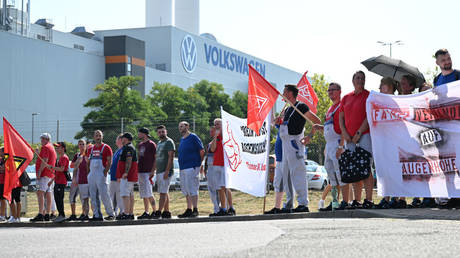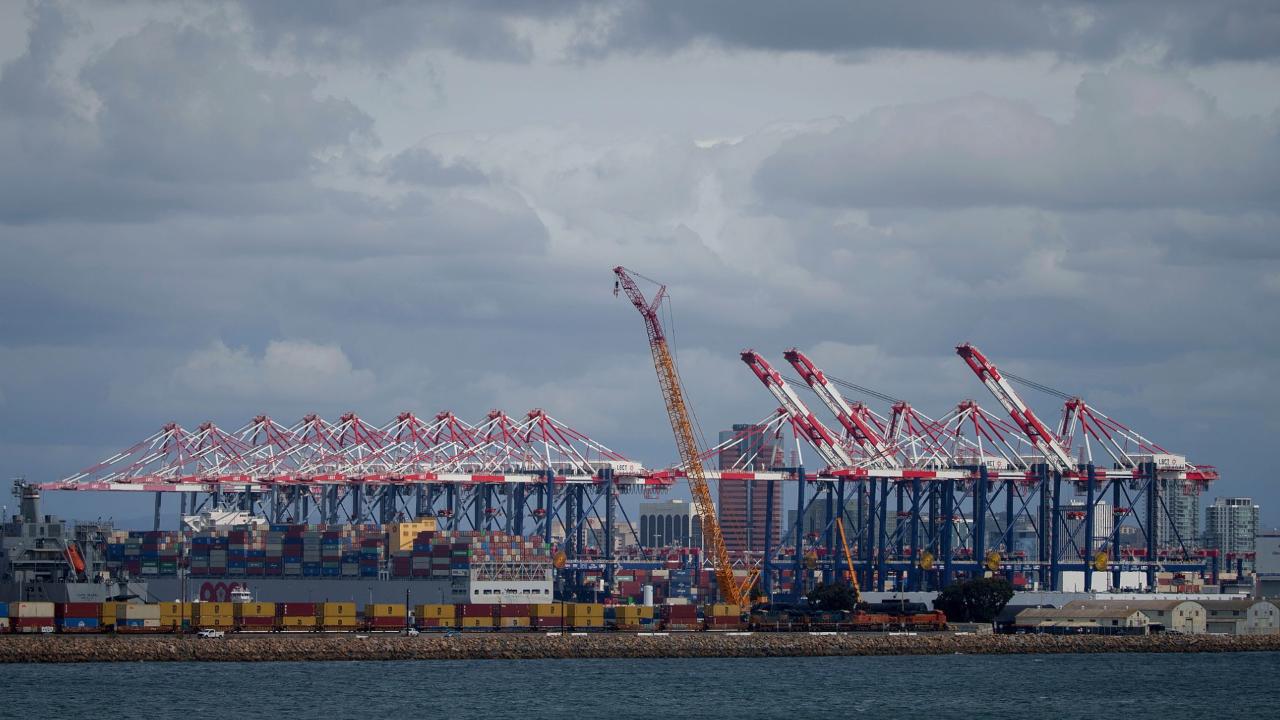Volkswagen intends to cut a large number of jobs, says workers' council chief
The car manufacturer intends to close a minimum of three plants in Germany as part of its efforts to reduce expenses, as stated by the head of its Works Council.

Cavallo stated that Volkswagen management is “absolutely serious” about the plans, emphasizing that this initiative is “not saber-rattling in the collective bargaining round,” according to Reuters.
Historically, Volkswagen has never shut down a plant in Germany during its nearly 90 years of operation. The last instance of facility closure occurred in 1988 in the United States.
“It is a firm intention to let the locations’ regions bleed dry and the clear intention to send tens of thousands of Volkswagen employees into mass unemployment,” Cavallo commented.
Her remarks come as Volkswagen engages in negotiations with unions to revamp its business operations, responding to declining demand from both China and Europe.
While Cavallo did not specify which of the ten Volkswagen plants in Germany might be closed or the number of the approximately 300,000 employees facing layoffs, she noted that all remaining sites would be impacted and that “none of them are safe.” She also revealed that Volkswagen management is pushing for a 10% pay cut and halting pay raises for the next two years.
Additionally, Cavallo underscored the urgency for the German government to devise a strategy to prevent the country’s economy from “going down the drain.” She highlighted a consensus among Volkswagen and other European firms on the challenges ahead, including the slow transition to electric vehicles and heightened competition from Chinese brands entering the European market.
“We are not far apart when it comes to analyzing the problems. But we are miles apart on the answers to them,” Cavallo said.
Recently, the Sueddeutsche Zeitung reported that the German economy is projected to contract for a second consecutive year as it grapples with high energy costs following the decision to reduce reliance on Russian gas. The German government has reported a 5.3% decline in industrial output over the past year, coinciding with a significant drop in orders for domestically produced goods.
Experts from the Berlin-based Forum for a New Economy have warned that if these challenges persist, the 2020s could become a “lost decade” for Germany, marking “the worst economic downturn since World War II.”
Anna Muller for TROIB News
Find more stories on Business, Economy and Finance in TROIB business












